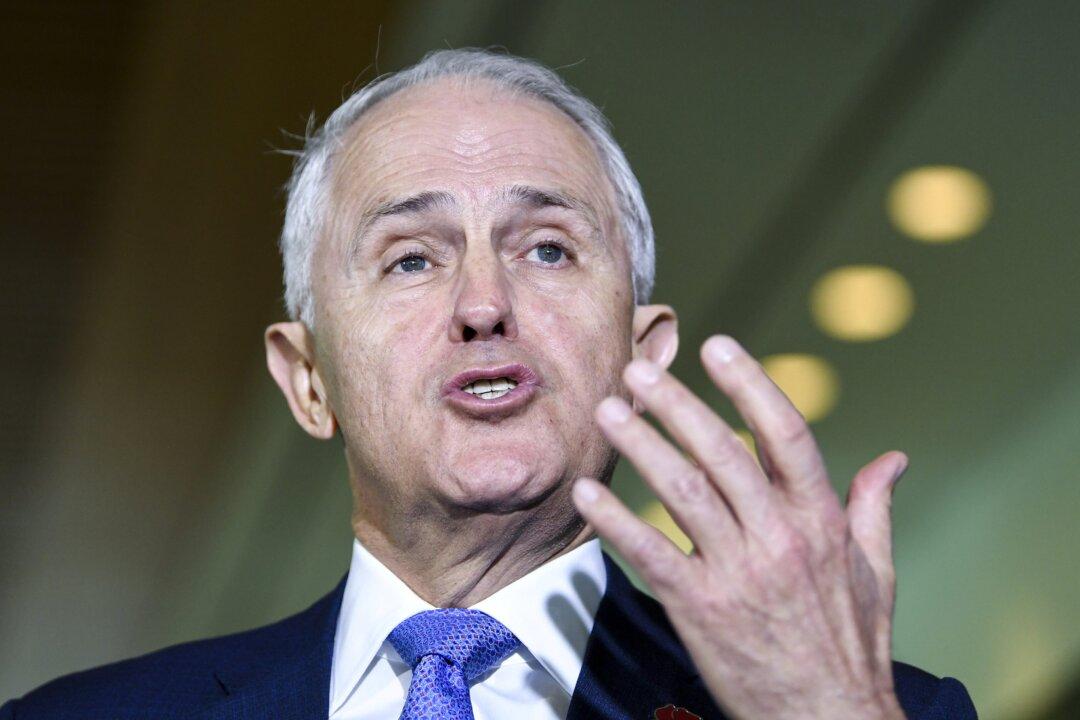Australia’s former prime minister Malcolm Turnbull said Wednesday that the country’s business and higher education sectors need to wake up to “bullying” and threats posed by the Chinese Communist Party (CCP).
Turnbull, whose government banned tech giants Huawei and ZTE from Australia’s 5G networks on national security grounds, criticized the nation’s business chiefs and academics after they condemned the Australian government over its relations with Beijing.





